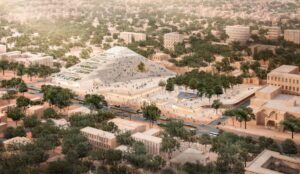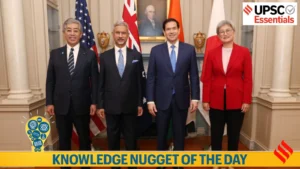According to Mining.com, Burkina Faso is accelerating the nationalization of its natural resources. The government recently requested an additional 35% stake in the Kiaka gold mine, operated by West African Resources (WAR), forcing the company to suspend trading on August 28. WAR stated that the government aims to secure greater rights, and trading is expected to resume on Monday, September 1.
WAR has evolved from a struggling exploration company into one of the most successful gold producers in West Africa, producing approximately 500,000 ounces of gold annually at low cost.
Following the Kiaka development, Orezone Gold, which operates the Bomboré gold mine, also suspended trading. While the government has not made similar demands, the company plans to meet officials over the weekend.
This development highlights the fragile investment climate in West Africa, similar to political instability in Mali. Burkina Faso, the fourth-largest gold producer in Africa, has recently transferred multiple significant assets to its state-owned mining company, SOPAMIB.
In June, five gold mines and exploration licenses were transferred to SOPAMIB from Endeavour Mining. The nationalization policy, initiated in August 2024, included the Boungou and Wahnion mines, acquired for $80 million, despite valuations reaching $300 million.
Other mines face similar risks. IAMGOLD continues operating the Essakane mine, with the Burkina Faso government holding a 10% stake, but security concerns heavily impact operations.
This policy shift reflects the growing influence of 37-year-old military leader Ibrahim Traoré, who took power in 2022 and declared himself president. He has encouraged ministers to expand state control over resources and pursue broader pan-African and anti-Western policies. Supporters view Traoré as a defender against foreign interference. Following a failed coup attempt in April, thousands gathered in Ouagadougou to show support, denouncing statements by U.S. AFRICOM General Michael Langley, who accused Traoré of misusing gold reserves. Demonstrations spread to London, Kingston, and Montego Bay, with African diaspora communities praising him as a “liberator.”
Traoré’s ability to stabilize Burkina Faso and combat ongoing Islamic insurgencies will determine the regional impact of nationalization. For foreign miners, this turmoil underscores how quickly long-term agreements can unravel. Countries like Ghana, Egypt, Namibia, and Botswana continue to offer predictable investment climates, while Côte d’Ivoire and Guinea are emerging as new investment hotspots.
Rio Tinto’s multi-billion-dollar Simandou iron ore project illustrates growing confidence in Guinea’s improving legal environment. However, risks persist: most successful African projects rely on world-class mines, diversified asset portfolios, and close government relations. While Barrick Gold monitors Mali closely, smaller companies like WAR face significantly higher uncertainty.
[Source – 上海有色网] 布基纳法索加快自然资源国有化 https://news.smm.cn/news/103508098




